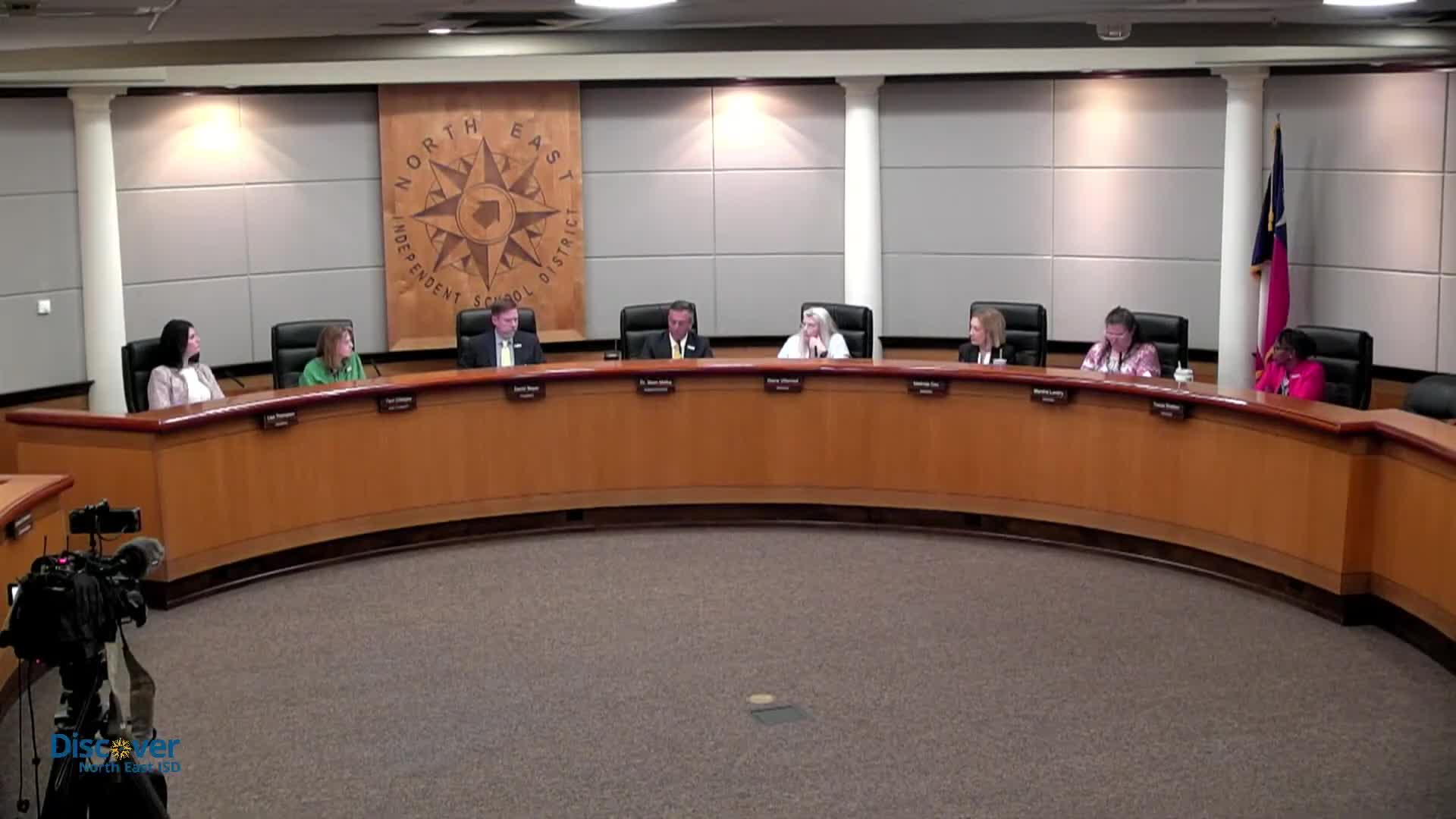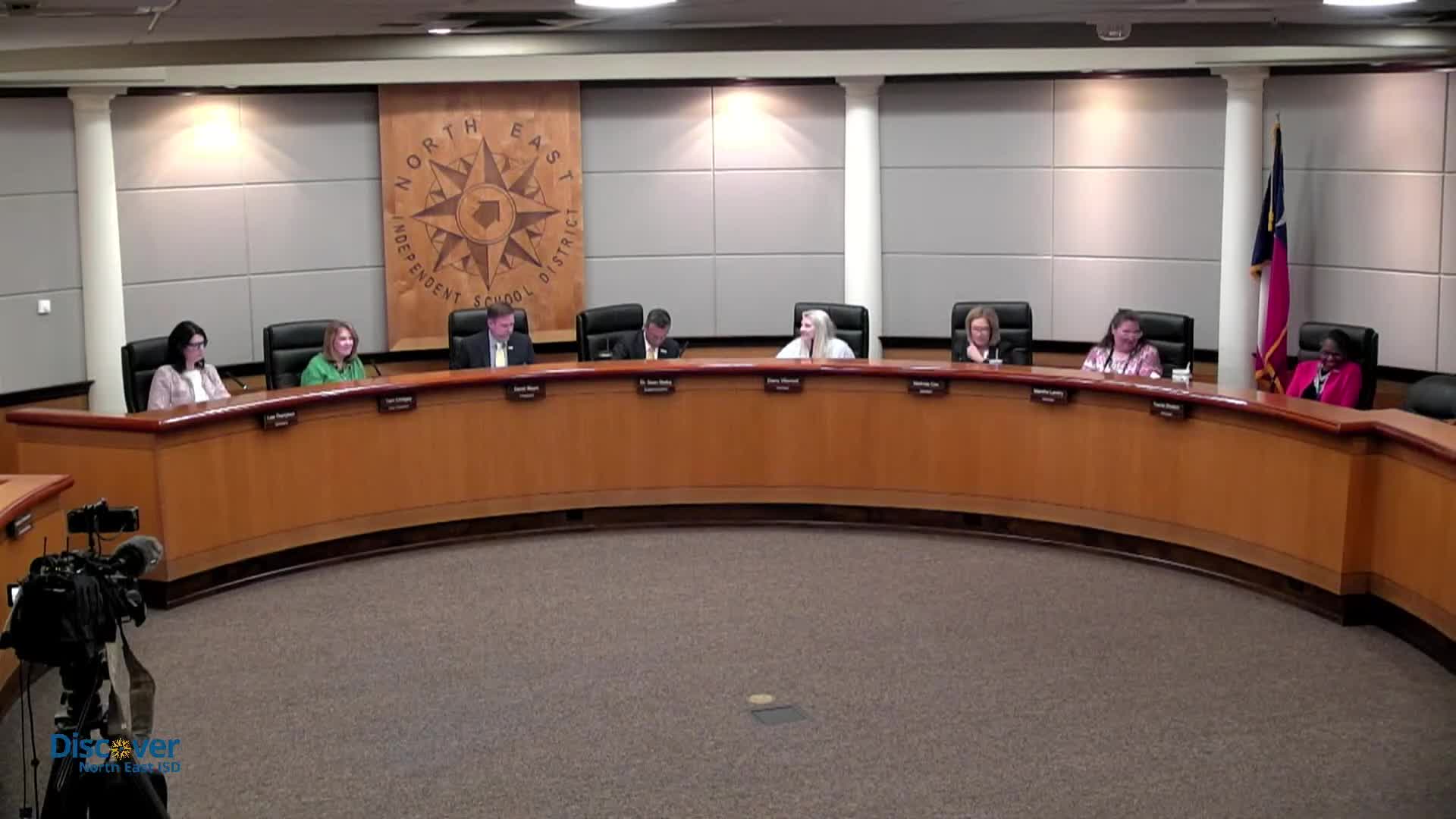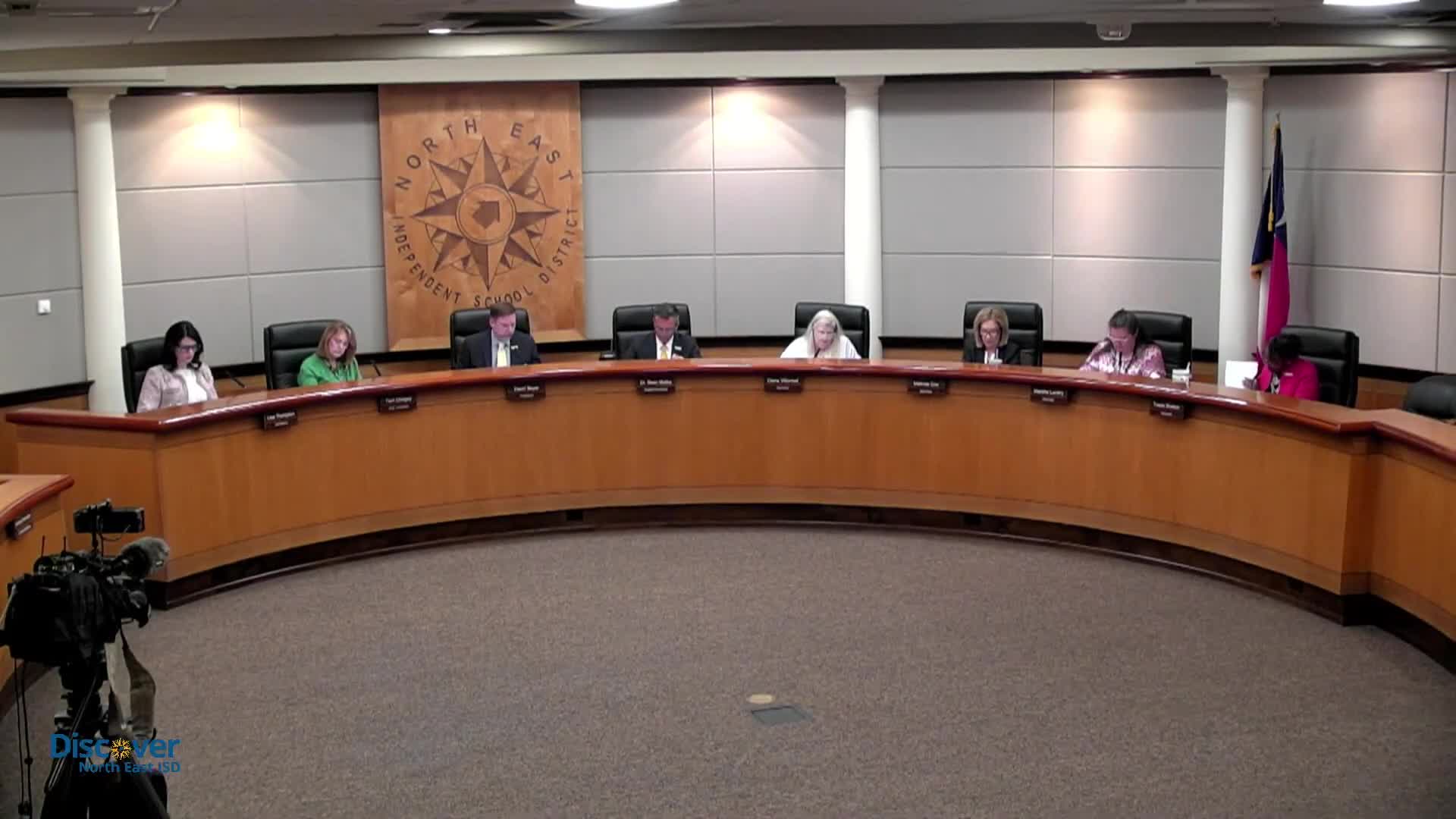Article not found
This article is no longer available. But don't worry—we've gathered other articles that discuss the same topic.

NEISD government affairs director briefs trustees on education bills, timelines as session nears sine die

Paraprofessionals and teachers urge NEISD to ease costs, maintain benefits amid budget pressure

NEISD outlines campus consolidation logistics: majority of staff placed; buses and facility work planned

